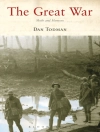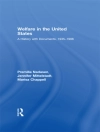In 1945, Europeans confronted a legacy of mass destruction and death: millions of families had lost their homes and livelihoods; millions of men in uniform had lost their lives; and millions more had been displaced by the war’s destruction, and the genocidal policies of the Nazi regime. From a range of methodological historical perspectives—military, cultural, and social, to film and gender and sexuality studies—this volume explores how Europeans came to terms with these multiple pasts. With a focus on distinctive national experiences in both Eastern and Western Europe, it illuminates how postwar stabilization coexisted with persistent insecurities, injuries, and trauma.
قائمة المحتويات
Introduction
Frank Biess
I. Defining the Postwar
Chapter 1. The Persistence of ‘the Postwar’: Germany and Poland
Norman Naimark
Chapter 2. Feelings in the Aftermath: Toward a History of Postwar Emotions
Frank Biess
Chapter 3. In the Aftermath of Camps
Samuel Moyn
II. Public and Private Memories
Chapter 4. Nothing Is Forgotten: Individual Memory and the Myth of the Great Patriotic War
Lisa Kirschenbaum
Chapter 5. Erased nor Remembered: Soviet “Women Combatants” and Cultural Strategies of Forgetting In Soviet Russia, 1940s-1980s
Anna Krylova
Chapter 6. Generations as Narrative Communities: On the Private Sources of Official Cultures of Remembrance in Postwar Germany
Dorothee Wierling
III. Mass-Mediating War: How Movies Shaped Memories
Chapter 7. ‘When Will the Real Day Come?’ War Films and Soviet Postwar Culture
Denise Youngblood
Chapter 8. “Winning the Peace at the Movies:” Suffering, Loss, and Redemption in Postwar German Cinema”
Robert Moeller
Chapter 9. Italian Cinema and the Transition from Dictatorship to Democracy
Ruth Ben-Ghiat
IV. The Reconstruction of Citizenship
Chapter 10. War Orphans and Post-Fascist Families: Kinship and Belonging after 1945
Heide Fehrenbach
Chapter 11. Manners, Morality and Civilization: Reflections on Postwar German Etiquette Books
Paul Betts
Chapter 12. From the “New Jerusalem” to the ‘Decline’ of the “New Elizabethan Age:” National Identity and Citizenship: Britain, 1945-56
Sonya Rose
Chapter 13. “We are Building a Common Home:” The Moral Economy of Citizenship in Postwar Poland
Katherine Lebow
V. In the Shadow of the Bomb: Military Cultures
Chapter 14. The Great Tradition and the Fates of Annihilation – West German Military Culture in the Aftermath of the Second World War
Klaus Naumann
Chapter 15. Soviet Military Culture and the Legacy of the Second World War
Mikhail Tsypkin
Chapter 16. 1945-1955: The Age of Total War
Pieter Lagrou
Notes on Contributors
Index
عن المؤلف
Frank Biess is Associate Professor of History at the University of California, San Diego. He is the author of Homecomings: Returning POWs and the Legacies of Defeat in Postwar Germany (Princeton UP, 2006), and he is currently working on a history of fear and anxiety in postwar Germany.












